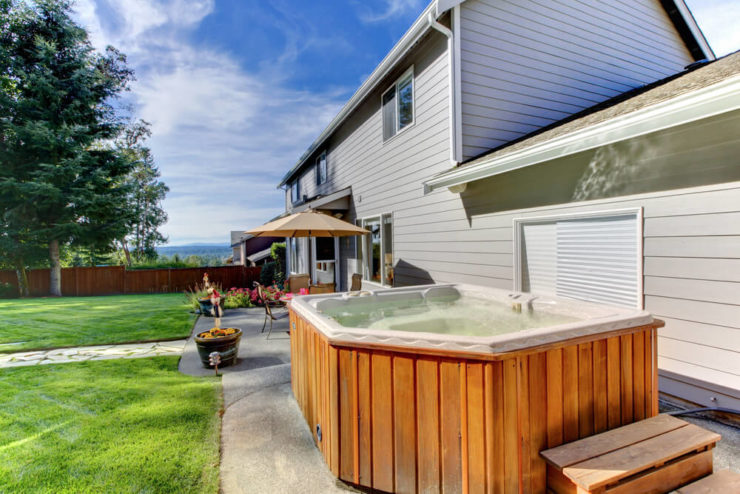Business
The troubling signs of an overpriced home
What makes a home overpriced?

While a seller’s goal is to make a profit, the asking price is unreasonable to average buyers. If buyers can’t justify why this home costs more than nearby homes, buyers will pass. However, a seller won’t know this until the response isn’t favorable. Here are some of the things that makes a home overpriced.
Home improvement projects
Including upgraded home amenities, home maintenance, and home additions through the years as justification to raise the price is a mistake. A seller who adds too many home amenities must find out whether most buyers want those features. Wanted home amenities are fencing, a garage, and a walkway. A pool, spa, sauna, or extreme landscaping divides buyers because not all buyers want those features. It’s not wise to ignore those buyers. It shrinks the buyer pool and lowers the chances of selling the home promptly. A seller must price the home from neighborhood market value, not special amenities.
Overblown asking price
A real estate agent should compare the last three sales of all similar-sized homes in the neighborhood to determine a roundabout price range. The seller, meanwhile, should have an estimate already in mind. Together, the seller and the agent should compromise on a solid asking price. All home prices in a neighborhood are in the same price range. The home of interest should hover around the same results. If the price is $30,000 or more above the high end of the median price, expect a low turnout. If it’s the most expensive home on the block, expect no turnout.
No immediate interest
A seller is optimistic about the home selling process and is confident the price will lure buyers to the home. The problem is little to no buyers are requesting showings, even with tons of online and offline promotion. After three months of little to no buyers, assume the home price is expensive. Remedies include lowering the price and offering incentives.

Sellers who add many home amenities should ask themselves if buyers want those features. (Photo by Artazum via Shutterstock)
From the buyer’s point of view, the buyer will look at eligible homes in their price range and research thoroughly. The buyer investigates home amenities, square feet, walkable amenities, commute time, schools, crime, parking, fencing, outdoor space, and public transportation to see if the home is worth an offer. Then, the buyer compares the answers to the other contenders. If the buyer cannot provide a reason to spend more for this home over another, buyers pass it up.
No immediate offers
What’s the point of buyers attending showings and open houses if no offers are coming in return? Showings are great to create buzz, and the buzz must tempt buyers to make an offer. A well-priced home will get an immediate offer within three months, even if it’s a lowball. In a seller’s market, an offer should come faster (between a week and two weeks) due to the seller advantage. After four to six months with no offer, assume the price needs an adjustment. Exceptions to the rule are luxury homes and beach homes.
Nearby homes sell first
If current competitors sell their home before this home, it is frustrating. It is equally frustrating if new homes on the market sell before this home. Both scenarios signal an overpriced home. A seller’s mistake to this dilemma is comparing their home to the already sold homes. Don’t compare. It’s likely neither the seller nor the agent has all the facts to compare. Instead, change strategy and lower the price to compete over comparing homes.
Don’t wait until it’s too late to turn it around. It’s important to price the home correctly the first time. Incorrect prices lead the home down the ‘reduced price’ path. Prices lower every three to six months until the home sells below asking price or the seller pulls the home off the market. Price it with the market trends, neighborhood average, and buyers in mind.
(Featured image by Ursula Page via Shutterstock)
—
DISCLAIMER: This article expresses my own ideas and opinions. Any information I have shared are from sources that I believe to be reliable and accurate. I did not receive any financial compensation for writing this post, nor do I own any shares in any company I’ve mentioned. I encourage any reader to do their own diligent research first before making any investment decisions.

-

 Biotech5 days ago
Biotech5 days agoPfizer Spain Highlights Innovation and Impact in 2024 Report Amid Key Anniversaries
-

 Cannabis2 weeks ago
Cannabis2 weeks agoGermany’s Cannabis Crossroads: Progress, Profits, and Public Concern
-

 Markets11 hours ago
Markets11 hours agoStock Markets Surge Amid Global Uncertainty, But Storm Clouds Loom
-

 Cannabis1 week ago
Cannabis1 week agoAurora Cannabis Beats Expectations but Faces Short-Term Challenges
























